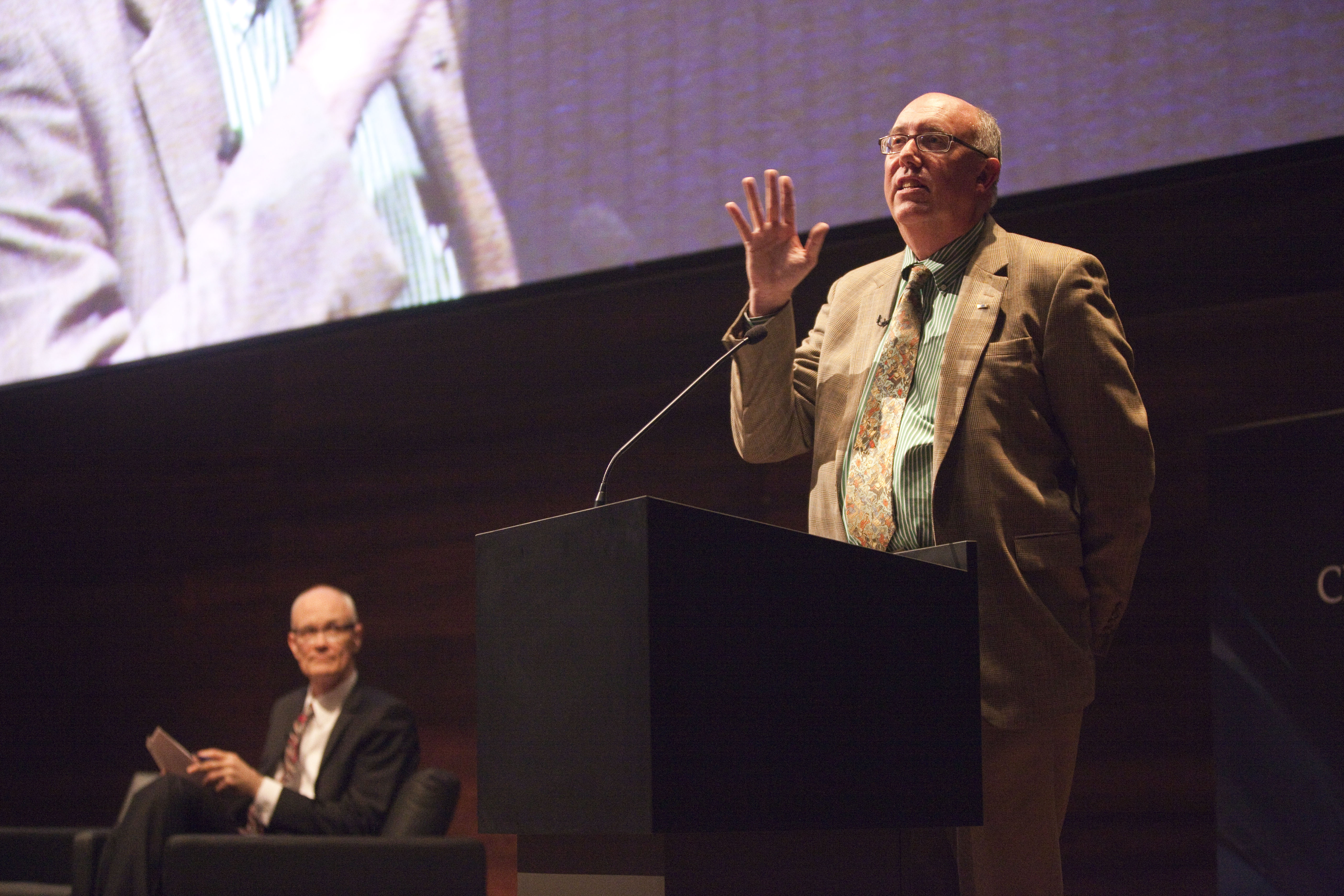CIGI hosts former US agent


Last Thursday, as part of the Centre for International Governance Innovation (CIGI) signature lecture series, Washington insider, former CIA analyst and Brookings Institution fellow Bruce Riedel addressed a local audience on the state of Iran’s political affairs. This lecture came just days after the Canadian government, in an unprecedented political move, severed diplomatic ties with Iran.
The title of Riedel’s lecture was “Obama, Romney, and Iran” and he spoke about the topic frankly to the Canadian audience, despite having worked as an advisor to the Obama Administration.
Riedel was onboard the Obama campaign from the very early stages.
“The Obama foreign policy team would have very comfortably fit on this stage, we were a very small group of people; that’s no longer the case I’m happy to say,” he said. “So I don’t come here as a disinterested or dispassionate observer.”
Riedel started off by clarifying, “This election campaign, like most election campaigns in the United States, is not about foreign policy. Bill Clinton famously said, ‘it’s the economy, stupid’ and it is the economy, stupid, again.”
He went on to explain that previous controversial and key issues, like the war in Afghanistan, are essentially irrelevant in this campaign.
Despite its alleged insignificance to the voters, Iran has been a hot-button issue in American politics since 1979, when 52 American citizens were held hostage in the country for 444 days shortly after the Iranian Revolution.
“When you look at it, the difference between the two candidates is a little hard to describe to the objective eye,” Riedel reflected. “Both President Obama and Governor Romney are very, very tough on the issue of Iran. Both say Iran cannot be allowed to develop nuclear weapons.”
Most serious of all are the implications of the fact that both parties have made clear that all options are on the table, Riedel continued to explain, “Which is code word, of course, for going to war.”
Riedel noted that the Iranian army, however, is far less advanced and comparatively weak to the United States.
“The Iranian army is not a modern industrial army with advanced weapons systems. The only military ally that Iran has in the world today is Syria. Not exactly a stronghold of military force to begin with and certainly not one today after 18 months of civil war,” Riedel elaborated.
Despite shared sentiments by both US political parties on dealing with Iran, Romney has heavily criticized Obama in his handling of the Iran situation, citing it as his greatest failure as president.
Romney has also suggested Obama has thrown US ally Israel, “under the bus.”
Israel, according to Riedel, is the “third person in the bedroom” in the United States’ relationship with Iran, acknowledging that Obama and Prime Minister of Israel, Benjamin Netanyahu, admittedly do not have the greatest personal chemistry.
He countered, however, that the US and Israeli security relationship over the last four years has been stronger than it’s ever been.
Riedel also made an important distinction between using suicide bombers, and being a suicidal state. He says even though Iran uses suicide bombers, based on what was made clear in the Iran-Iraq war, Iran is not a suicidal state and is interested in self-preservation.
He concluded, “The Islamic Republic of Iran is pretty hard to intimidate, these people are not easily scared, and they’re not easily pushed around. Military threats, military actions, the threat of war and the use of war, do not easily intimidate Iran.”


